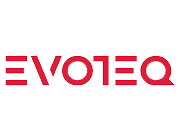Advice for writers from authors, publishers and distributors in Dubai.
You have written your story, your scoop, your screenplay or your poem. But how do you distribute your content? What are the steps for successfully publishing your stories to a broad audience in the Arab world?
On the eve of the Emirates Literature Festival, Shelter Dubai hosted a panel discussion investigating some of the ins and outs of publishing in the Middle East and specifically in the United Arab Emirates.
The panelists, each representing a different market for published content in Dubai, reflected on the status of publishing in the region and offered advice for writers of all genres looking to break into the market.
Step One: Entertain
“Books are not competing against other books,” author Qais Sedki explained. “They are competing against everything else.”
Most readers pick up a book for a single reason: to be entertained. But in a world where hand-held entertainment has become increasingly interactive and self-guided, a traditional book is, for some, a tough sell.
Mr. Sedki found a way to make books more entertaining by producing the first-ever Arabic-language manga series, The Golden Circle.
“When you read manga, you almost do not feel like you are reading,” Mr. Sedki said.
Whatever you are writing, your material has to be more attractive than any other option: a reader will have to chose your story over the next guy’s book, app or video game.
Step Two: Write What They Want To Read
“There is a huge hole in Arabic literature for seven-to-eight year olds,” said Zeyna Al Jabri, founder of Buzoor, an organization dedicated to distributing Arabic language children’s literature. “We don’t have enough variety to satisfy these readers, and the content does not match their age level or mental level. Their ability to read in Arabic might be limited, but they are able to understand more complicated plots.”
This gap is an area of opportunity for aspiring children’s authors in the region, especially Emirati authors and others publishing Arabic content for children.
Yazad Darasha, managing editor of Zawya, echoed the call for more Arabic content.
“Google released a survey revealing that in 2010, 60% of web searches in Saudi Arabia were conducted in Arabic and 70% of web searches in Egypt were conducted in Arabic. There is a massive opportunity to provide information that is credible and intelligent in Arabic, and I don’t think we are doing enough of that in this entire region,” Mr. Darasha said.
Whether you are writing a children’s story or a news piece, explore the possibility of publishing in Arabic. There is a need to Arabic language content, especially in the United Arab Emirates.
Step Three: Explore Your Options
Technology can be a hindrance to reading, as Mr. Sedki and Ms. Al Jabri pointed out. But technology can also be a great tool for young authors.
Blogs are one way to create a strong readership, advised David Haddad, co-founder of the media-matching service, PressPass. Another option is to make your content available for download. “Put your book on Pirate Bay,” Mr. Haddad said, “and see how many downloads you get.” This data can help you contact friends and partners to help promote your product and set up subscription systems as well.
For the author who is eager to see her writing on printed-paper, print-on-demand is an option to seriously consider.
“Increasingly, you do not need a publishing house,” Mr. Sedki said. “Sites such as Lulu.com are set up to help writers self-publish and bypass publishers.”
Self-publishing is also a method for saving money. “Unsold inventory is essentially money that you have locked in a box. But digital enables print-on-demand, when you don’t print a book until someone is interested in buying it. You can have a print run one one,” Mr. Sedki said.
However you approach publishing your work, you will still need to spread the word about your product, Ms. Al Jabri said. “It is one thing to get your content out. It is another thing to get it out to everybody you want to hear or read your content. You need something to push your content, whether it is a publisher, or an award, or marketing.”
Whether you go with a publisher, maintain a blog or print-on-demand, the storytelling tradition will continue to evolve.
“The art of storytelling will be a business opportunity as long as there are human beings,” Mr. Darasha said. “It started with cave paintings, where someone had to tell someone else, ‘I killed a bear, and this is how I did it,’ and he draws it on the wall. Storytelling is an art that will always be with us. It is only how it is delivered that is going to change.”
Today, authors have the unique opportunity to choose which method of delivery works best for them. Find the option that works best for you, and market yourself.
Step Four: Relevant Content is Key
Whether you publish your work on a blog, in a book or via tweets, you will only be read if people want to read your content.
However, the barriers that traditionally existed between good content and the public are slowly being overcome.
“In the past, it was a gated city. Now we have all these ladders on the gate, and people are climbing the walls,” Mr. Sedki said, explaining the phenomenon of consumers now being the judges of content as opposed to publishers.
“The roadblocks to getting content published have been removed and the channels have been made smoother,” Mr. Darasha said, “but it is still all about the content. Unless the content is relevant to the consumer, its not going to get delivered.”
In Conclusion: What does it take to be a writer in the UAE?
In closing remarks, panelists were asked to share – briefly – their tips for getting work published in the United Arab Emirates. Their advice is recorded below:
“The will to write. It is all you need, and you will find everything else. I did that and I didn’t have anything else. You learn what is missing and you go ahead.” – Qais Sedki
“As an Emirati, if you just have an idea, it is very easy because there is a craving for Emirati writing.” – Zeyna Al Jabri
“Start a blog. Build your readership post by post. There are no barriers. If you want to do something just go ahead and do it, to getting published. Just do it.” – David Haddad
“The will to learn how to structure, the dedication to do it every day and the ambition and the push to constantly print and publish, publish, publish.” – Yazad Darasha






